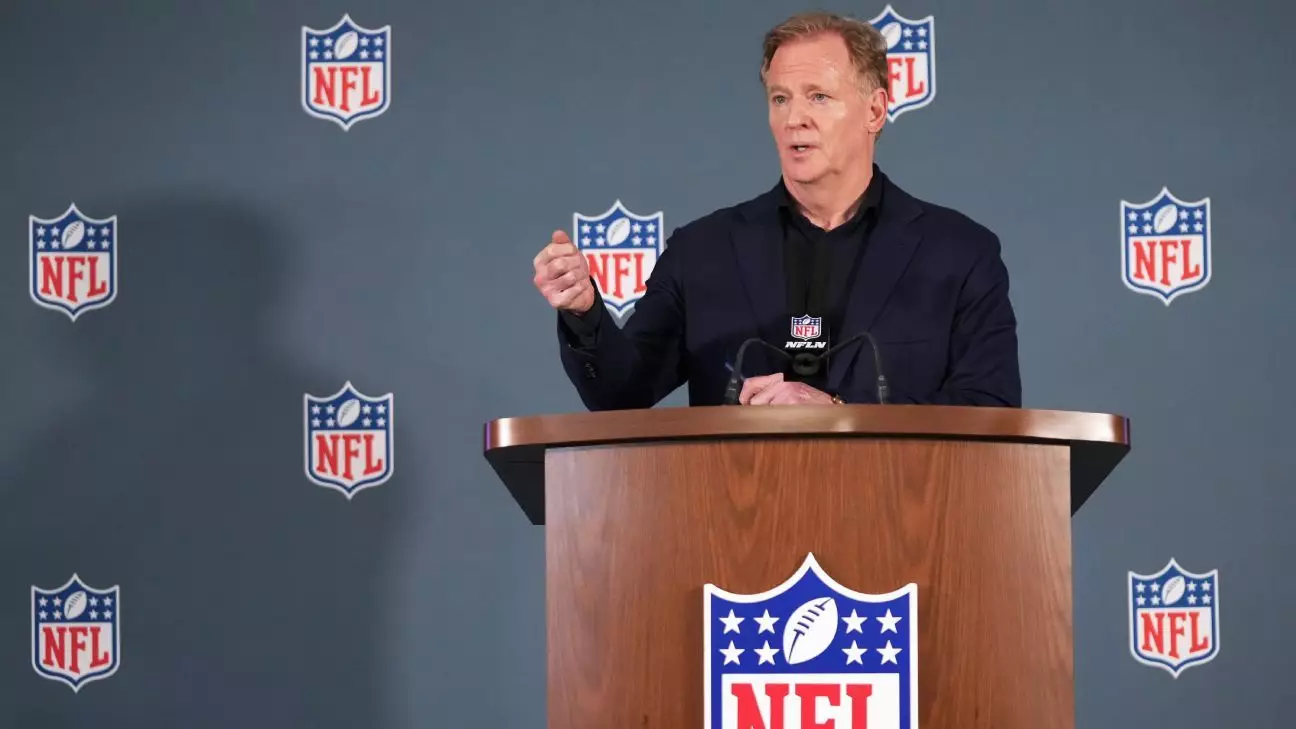The announcement of flag football debuting as an Olympic sport at the 2028 Los Angeles Games marks a significant turning point for the NFL and enhances the legitimacy of this dynamic variation of American football. NFL Commissioner Roger Goodell’s comments regarding the enthusiasm among players for participating in the Olympics reflect a larger trend that is slowly but surely integrating flag football into the fabric of international sports. The Olympic stage offers a unique platform for American football to expand its global reach, potentially elevating its status on par with traditional sports like soccer and basketball, both of which have significantly impacted the global sports landscape.
Goodell’s assertion that many players express a strong desire to represent their countries during the Olympics underscores the deep-rooted passion and commitment athletes have for their sports. Flag football, as a non-contact version of football, presents a less risky alternative, making it more appealing for participation on a global scale. This new development in Olympic sports symbolizes a noteworthy shift toward inclusivity in athletics, where individuals can shine without the threat of cumbersome contact.
Challenges on the Horizon
Despite the excitement surrounding the introduction of flag football, significant challenges remain that the NFL must navigate effectively. Among these is the issue of scheduling conflicts with the NFL’s training camps, which typically commence in late summer. The Olympic Games are slated to take place from July 14-30, 2028, potentially causing logistical nightmares for teams trying to balance player participation against the backdrop of pre-season preparation.
Moreover, concerns regarding player safety and the existing injury protocols must be a priority. As players transition into international competition, proper protective measures need to be enforced to ensure their well-being. The NFL has traditionally been under scrutiny regarding player injuries, and any oversight in the treatment of players during the Olympics could lead to public backlash and further scrutiny from fans and stakeholders alike.
The NFL’s Commitment to Diversity
In addition to addressing Olympic participation, Goodell reiterated the NFL’s commitment to diversity and inclusion within the league. Amid increasing scrutiny regarding the lack of representation, particularly in key roles like offensive coordinators, the league’s leadership must actively foster a culture of inclusion. Goodell’s acknowledgment of the challenges associated with diversity reflects an executive who is both aware and responsive to the evolving landscape of football.
The reinforcement of the Rooney Rule, which requires NFL teams to interview underrepresented candidates for coaching and executive positions, presents an opportunity for the league to demonstrate its commitment to equity. Cowboys owner Jerry Jones’ support for this initiative indicates a growing consensus among team owners on the importance of providing equitable opportunities.
However, it is crucial to recognize that mere policies will not address the issue of diversity; genuine action and accountability must be prioritized. The NFL must ensure this commitment transcends superficial measures and penetrates deeply into the fabric of its operations. All stakeholders, from owners to players, must unite to build a league that reflects the diversity of its fan base and the broader societal landscape.
Looking Forward: The Future of the NFL
As the NFL steers through this transformative period, the balance between tradition and innovation will be critical. The positive sentiment surrounding flag football as an Olympic entry is merely a glimmer of what could lie ahead for the sport. Should the NFL embrace these changes wholeheartedly, it will not only bolster its global footprint but also cultivate a more inclusive environment within its ranks.
The players’ eagerness to represent their nations in the Olympics speaks volumes about the growing appeal of flag football. By committing to positive initiatives and overcoming barriers both in the Olympics and within the league itself, the NFL has an unprecedented opportunity to redefine its legacy for a new generation of athletes and fans alike. This commitment to evolution, particularly in the realm of Olympic participation and diversity initiatives, could very well set the stage for future triumphs both on and off the field.


Leave a Reply